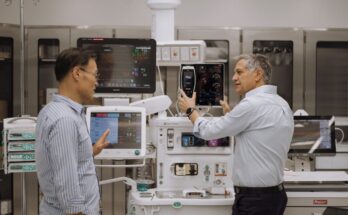In recent times, local Killeen hospitals have reported a drastic increase in several car accident cases. But why is that so?
Automobiles and travel are necessary components of our society. However, the injuries they cause can leave many people searching for a way to recuperate, heal, and restore themselves to their pre-accident form. Much of these collisions can cause severe damage to your back, which is one of the most sensitive regions of your body. Even though various difficulties might occur, many individuals do not realize the need to get to the nearest emergency room as soon as possible.
Even though every car accident varies, some injuries are more common in car crashes due to the nature of the protective equipment, vehicle construction, and how one’s body reacts to stress. Several traffic-related injuries are mild and treated right once, while others may take months or even years to heal and involve physiotherapy and chiropractic care. One of the most common car accident injuries is disc herniation.
After a vehicle accident, numerous individuals may suffer from this condition. If the spinal cord is injured, this injury can lead to persistent discomfort, impairment, and possibly paralysis if not treated properly. For getting on the road to recovery, you must seek medical help as soon as possible.
What is Disc Herniation?
A herniated or ruptured disc is the damage to the individual bones that form your spinal cord, often known as vertebrae. It happens when the disc’s delicate, jellylike nucleus, or nucleus, slides through the hard shell, rubbery surface. When a hernia arises, it frequently irritates adjacent nerves, resulting in discomfort or paralysis in a neighboring limb. The discs in the spine assist in absorbing stress and damage.
After a car accident, a herniated disc tends to happen when the force from the collision provokes one of your vertebrae into your spinal canal, compressing, pressing on, or otherwise irritating your spinal cord. It could be a cluster of nerves that transmits data from your brain to various parts of your body. This damage can happen in any of the three sections of the spine: the cervical (neck), lumbar (lower back), or thoracic (upper back) (mid-back).
The rapid, jerky movement of the accident frequently places excessive pressure on a specific location of the spine, resulting in disc herniation. As this spinal cord gradually declines with age, older automobile accident victims may be at a higher risk of disc herniation than younger ones.
Symptoms of Herniated Discs after a Car Accident
If you have any of the symptoms listed after a car accident, you should get medical help to establish if you have sustained this sort of injury:
- Leg pain or weakness
- Sharp, localized pain in the neck, upper back, or lower back
- Constant pain and rigidness in the backbone
- A persistent ache in the middle or lower back, particularly after long periods of sitting or standing
- Numbness or tingling along the affected nerves
- Back pain radiating from the low back to the posterior, down the back of the thigh, and into the calf and toes
Risk Factors and Complications
Due to some unfavorable characteristics, some people are more likely to suffer from herniated discs than others. So let’s take a quick look at these factors:
- Obesity: When there is extra weight on your lower back, it will have to withstand a lot more strain. So, in the case of an accident, you have a higher chance of disc herniation.
- Occupation: Some people have a more physically demanding job as compared to others. As a result of the repeated stresses on your back, the spinal discs may weaken.
- Genetics: Lastly, genetics can also play a role in disc herniation. If a person naturally inherits the likeliness for developing herniated discs, they will be more susceptible in the case of an accident.
Risk factors aside, untreated disc herniation also has the potential for further complications. In some circumstances, the herniated disc can compress the spinal canal’s long nerves. Consequently, you may experience worsening symptoms alongside bladder and bowel dysfunction.
How Do Doctors Diagnose Disc Herniation?
Following a vehicle collision, you may experience instant, excruciating back pain as well as numbness in your limbs. The emergency department doctor may examine and prescribe an MRI to record the physician’s suspicions about the ruptured disc.
There are some cases where X-rays performed in the emergency department can’t identify a herniated disc. So if you’re still in pain after an accident and have not had another scan, you should see your physician for a second opinion. When conditions are not favorable with conservative treatment, you may need to be proactive in requesting an MRI.
After a vehicle accident, if you have symptoms that are compatible with a herniated disc, your physician will do a medical assessment and most likely utilize one of the following diagnostic imaging procedures to make a diagnosis and propose treatment:
- Myelography
- CT (Computerized Tomography)
- SPECT (Single-Photon Emission Computerized Tomography)
- EMG (Electromyography)
How to Seek Treatment for Disc Herniation after a Car Accident?
Typically, a doctor will advise you to try pain management and physiotherapy to alleviate your back pain. A herniated disc can sometimes heal without the need for additional medical treatment. Several patients may not see their symptoms go away on their own and will have to deal with lingering pain.
Herniated disc difficulties and pain caused by a car accident can get treated with surgery. Numerous processes today are far less intrusive than those used 10 to 15 years ago. All of these make surgery a far more worthwhile investment for treating herniated disc pain.
Nevertheless, herniated disc treatment may result in significantly higher costs following your car accident. Following a severe car accident, chiropractors may recommend your therapeutic approaches and how to get the best reasonable compromise to your herniated disc pain.
Innumerable individuals underestimate the importance of professional help after being in a car accident. However, prompt treatment and chiropractic care can help you avoid more severe physical problems down the road. Understandably so, one may visit a chiropractor.
Are There Any Other Treatment Options For Disc Herniation?
Surgery is one of the most generally prescribed treatment choices for a herniated disc after a car accident. Why? All because of the pain it causes and the risk it causes to a victim’s spinal cord. The following are the several forms of surgery performed to treat herniated discs:
- An artificial disc implant entails inserting artificial discs between the injured discs to provide consistency and relieve pain.
- Discectomy surgery entails removing the herniated or injured section of the disc.
- Vertebroplasty is where bone plaster gets injected into compressed or fractured vertebrae.
- Laminectomy/Decompression procedure includes removing the bone, covering the spinal canal to reduce pressure on the nerves.
- Fusion surgery is connecting or fusing two vertebrae to prevent uncomfortable mobility.
Final Words
The majority of car accidents are beyond our control. Car accidents, without a doubt, may leave your back in a bad state. We do, however, influence the disc herniation treatment route following the incidence. If you have just been in a car accident, make an appointment with a Killeen chiropractor to get some relief. They will undoubtedly assist you in getting back on track and feeling better!





